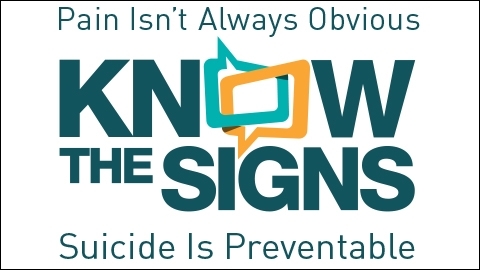
Suicide is a major public health concern. Over 48,000 people died by suicide in the United States in 2018; it is the 10th leading cause of death overall. Suicide is complicated and tragic, but it is often preventable. Knowing the warning signs for suicide and how to get help can help save lives. Compassion Mental Health Services joins the call to promote awareness around the issue of suicide prevention – as well as other mental health conditions.
Compassion Mental Health Services can assist individuals in crisis
Compassion Mental Health Services has been an advocate for and a compelling voice in the support of social and emotional health for all individuals. Our organization is committed to providing trauma-focused care and a full range of behavioral health services from children, adolescents, adults, and families in Lawrence county and the surrounding areas. Our mission is to provide comprehensive, high-quality, accessible, and affordable health services to empower patients to overcome their individual challenges, maintain their day-to-day stability, and develop their potential, all in order to achieve their personal goals and improve both their lives and communities.
Know the warning signs; get help
Suicide does not have one single cause. Certain factors like substance abuse, untreated depression, unresolved traumas and stress can lead to higher risk of suicide.
The behaviors listed below may be signs that someone is thinking about suicide.
- Talking about wanting to die or wanting to kill themselves
- Talking about feeling empty, hopeless, or having no reason to live
- Making a plan or looking for a way to kill themselves, such as searching for lethal methods online, stockpiling pills, or buying a gun
- Talking about great guilt or shame
- Talking about feeling trapped or feeling that there are no solutions
- Feeling unbearable pain (emotional pain or physical pain)
- Talking about being a burden to others
- Using alcohol or drugs more often
- Acting anxious or agitated
- Withdrawing from family and friends
- Changing eating and/or sleeping habits
- Showing rage or talking about seeking revenge
- Taking great risks that could lead to death, such as driving extremely fast
- Talking or thinking about death often
- Displaying extreme mood swings, suddenly changing from very sad to very calm or happy
- Giving away important possessions
- Saying goodbye to friends and family
- Putting affairs in order, making a will
If these warning signs apply to you or someone you know, get help as soon as possible, particularly if the behavior is new or has increased recently.
If You Know Someone in Crisis
Call the National Prevention Life Line at 1-800-273-TALK (8255), or text the Crisis Text Line (text HELLO to 741741). Both services are free and available 24 hours a day, seven days a week. The deaf and hard of hearing can contact the Lifeline via TTY at 1-800-799-4889. If you want to learn more about clinical depression, suicide risks and other common psychiatric conditions, then please call today at 724-856-8620 or visit our facilities to arrange a confidential mental health consultation.

